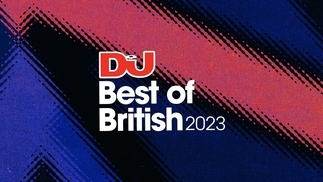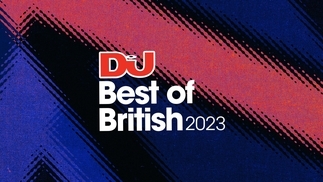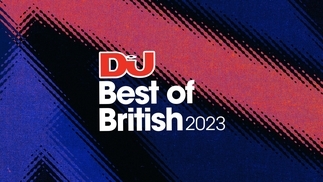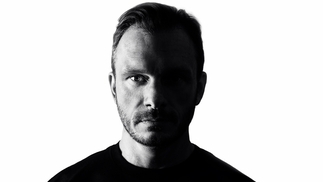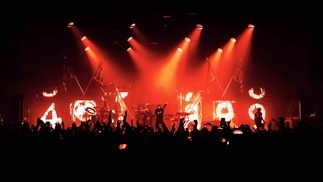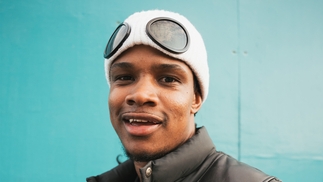BEST DJ: ANDY C
The drum & bass heavyweight remains light years ahead
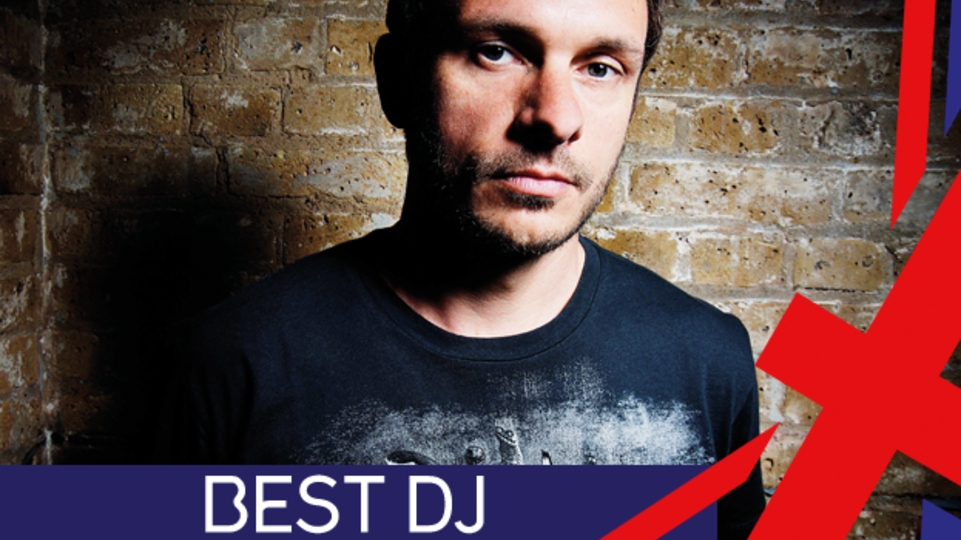
“That’s amazing, thank you very much!” says Andy C when DJ Mag tracks him down to an Australian hotel room to congratulate him on winning Best DJ. “That’s a turn up for the books! No, that’s really cool man, thank you. It’s nice to be recognised. Thanks to everybody for voting.”
Andy Clarke started DJing 20 years ago when his game-changing 'Valley of the Shadows (31 Seconds)' track as Origin Unknown, with long-term pal Ant Miles, kicked off. He started getting bookings for all the big raves of the time like Dreamscape, Telepathy and Innovation, and hasn't really looked back. DJ Mag asks Andy if he still thought he'd be DJing two decades later. “I guess I did,” he says, “although when I was doing it back then — buying records with my pocket money or my Saturday job money — I didn’t think I’d be out in Australia and doing all these places 20 years later.
The level of events that I get to play at around the world — I’ve done some crazy stuff.”
He starts talking about playing in Kuala Lumpur, Malaysia, Singapore, Taiwan and Korea on his Asia tour this year, “and then to cap it all off, the Great Wall of China was pretty surreal”.
A producer first, Andy then begins to reminisce about his early gigs as a DJ. “Twenty years ago it was more like playing in a shed — that was basically it,” he chuckles. “But that was still fun, y’know — doing pirate radio... I guess there’s different levels. When you start out, everything’s massively exciting and everything’s new, and I would’ve done anything to DJ anywhere.
I remember playing an illegal party in Kent and there was like a lamp in there, you know those lampshades with the little tassel-y dangly-bits? That was basically the lighting rig. I’ve definitely seen all sides of it.”
The Ram Records public face likes to think he's a better DJ with experience these days, in response to DJ Mag's question. “I guess the experience comes with playing small clubs in London to a bunch of headz that really wanna get down deep — done that. Done the cowshed in Kent, and then playing in front of huge crowds at festivals and learning that — there’s all different sides to it,” he says. “I’m obviously still learning, but I’m enjoying it and feeling the energy from the crowd. Does it mean I’m better if I’m more relaxed? Possibly — either that, or the vodka!”
Andy was known in drum & bass as 'The Executioner' for executing perfect simultaneous double-drops of dubplates. But in the last couple of years he's left the dubplates behind. “One of my main reasons for embracing digital was I turned up to a show in Copenhagen and none of my records turned up,” Andy outlines. “I had Traktor on my computer but I’d never ever used it, never done a set with it — I’d loaded it up and had a look at it, but that was all — and so I downloaded the driver for Traktor backstage, chucked a few tunes in, literally in five minutes, and it just worked. It’s such a stable platform, and it was a new experience hearing everything so clear.
“That show went so fantastic, and then the next day I travelled from there to Portugal and my dubplates joined up with me, and I did this gig at a festival with dubs — and it was an absolute nightmare,” Andy continues. “There was an unsecured stage, the needles were skipping everywhere, so that was a sign. That was the start of the change in August 2011. Maybe it was 2010, I don’t know — it all seems like one long weekend!”
Andy went on to develop his ALIVE concept, using Traktor-powered turntables and cutting-edge audio-visual technology that he had to learn all about for the show.
“It was a very interesting learning curve, hooking up with the guys from Green Hippo and Featureworks, we was rehearsing until 6am in the morning,” Andy says. “Nigel was programming a language called Boolean into his computer, god knows what that is, but it became a completely bespoke show. Everything was freestyle and of the moment, instead of some of the shows that you might get where somebody presses the button and it’s synced. It was also lovely to go around on tour with it, with a crew of five people — camaraderie, and get there early to gigs to set-up and be on the road. It was a change for a lot of things.”
A few years ago Andy would have got grief for giving up vinyl from some in the wax-loving drum & bass scene, and Andy waxes lyrical about “loving the dubplate culture of going down Music House and sitting there with everybody and chatting, and getting the tunes upfront, and the tunes used to take a lot, lot longer to grow into monster big tunes — therefore, they used to have more shelf-life. But things change,” he says. “The beauty about drum & bass is that we encompass so many generations in our 20 years. We do remember that stuff fondly. After that show in Copenhagen it just felt right, and after that I went back home and learned Traktor properly.” The time-coded vinyl he uses with Traktor now means that he's able to go out and have every tune he's ever owned with him at his fingertips.
“I’ve been doing longer sets — four hours, six hours,” Andy says. He starts recalling learning the craft of DJing back in his teenage years. “When I learned to DJ, I literally got a pair of belt-drive decks and basically stayed up all night, every night,” he says. “I must’ve had two or three hours sleep per night when I was at school learning how to do it, and that magical moment when you first beat-match a record... actually getting the concept of what the bloody thing is, cos nobody was there saying, ‘Yeah, you need to cue it from there on the downbeat of the bar’. There was no DJ schools like Point Blank or anything like that.”
